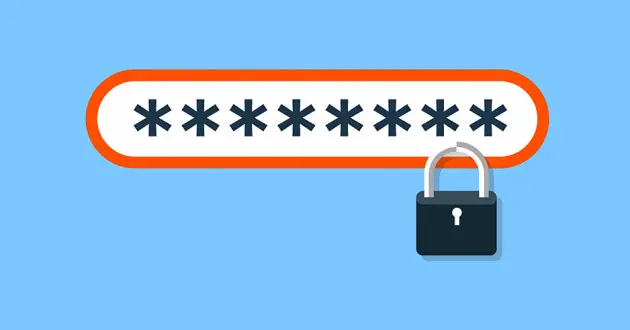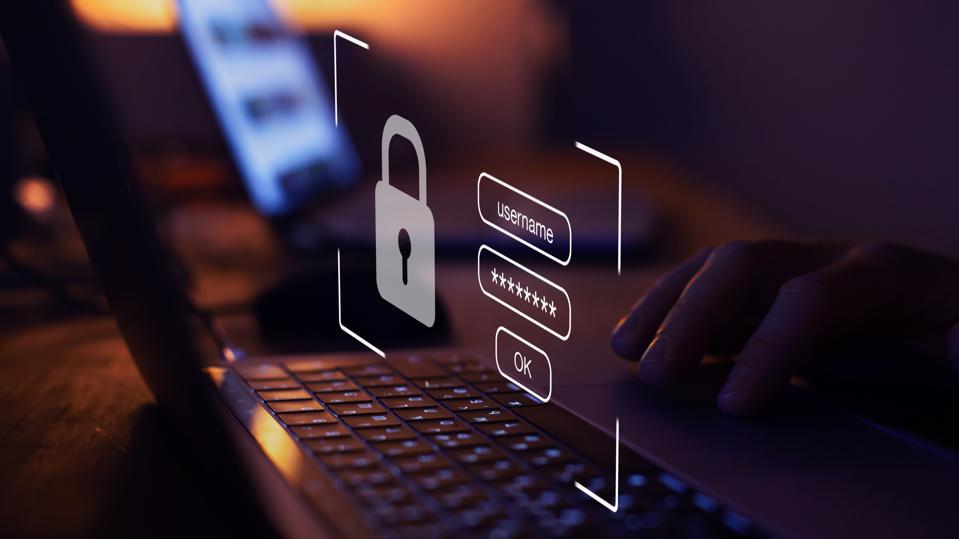A strong password is a unique and complex combination of characters that is difficult for other people or computer software to guess. To achieve this, it is recommended to use upper and lower case letters interspersed with numbers and symbols.
Creating a strong password is essential to keeping your accounts, banking apps and social networks secure. Combinations with at least 16 characters can prevent profile hacking or even access to financial data.
Below, find out the main tips for creating a strong password and protecting your accounts.
1. Use a password with at least 16 characters
It is recommended to use at least 16 characters to create a secure password for an account. The longer and more complex the combination, the harder it will be for hackers to break into your account.
A 16-character password, for example, can be millions of times harder to crack than a 12-character combination. This is because the possible combinations increase exponentially with each additional character.
However, it is worth mentioning that the maximum number of characters may vary depending on the platform. So, pay attention to these details when creating your password.

2. Use a password that combines letters, numbers and symbols
Current password systems use standard ASCII characters. This means that you can create a combination by mixing numbers, letters (upper and lower case) and symbols (!, @, #, $).
The trick to creating a strong password is to use a varied combination of letters, numbers and symbols. It is essential that it be a sequence that is easy to remember, but that it does not follow a pattern that is easy for other people or computers to guess.
3. Avoid common patterns like “1234” or “qwerty” in passwords
Passwords with common sequences, such as “1234” or “qwerty”, are easy targets for hackers. This also applies to combinations that use dictionary words or obvious words, such as the traditional “admin”, “password” or “Senha”.

Specialized software can crack these passwords in seconds using brute force techniques. A computer will try every possible combination to access your credentials. So very simple passwords are easier to crack.
4. Avoid putting personal data in your password
Using your date of birth, phone number, nicknames, or pet names as passwords puts your accounts at risk. Criminals use tools and techniques to find this information on social media or public sources.
With personal data, a hacker can explore different password combinations and have a high chance of accessing your accounts. Therefore, when creating a strong and unique password, it is recommended to use complex combinations that are not related to personal information.
5. Avoid obvious character substitutions like “T3chn0l0gy”
Replacing letters with numbers, as in “T3chn0l0gy,” is one of the biggest mistakes when trying to create a secure password. This practice, known as leetspeak, is easily detected by hacking software.
The programs test various character combinations, including replacing letters with numbers, to crack passwords quickly. Again, the trick is to create passwords with long, random combinations of letters, numbers, and symbols.
6. Avoid using a password that has already been used on another account
Using a single password for multiple accounts is like using a single key to unlock multiple doors in your digital life. So if your credentials end up on a leak list, an attacker could access all your platforms using just one “key.”
Registering a single password across multiple websites, social networks or apps can create a situation of double exposure. Leaked credentials can be used in different places, increasing the risk of multiple accounts being compromised at the same time.
What are examples of strong internet passwords?
There are several examples of strong and secure passwords that you can use in your everyday life:
- Random words combined: write a meaningless sentence by replacing letters with numbers and symbols, making it difficult to associate with personal data. Example: cat$mountain2blue%football;
- Random special characters: create random sequences with special characters. The longer and more varied, the harder to break due to the large number of possible combinations. Example: !(#&%qneIALu173*;
- Specific rule: Define a rule that is easy to remember and apply to different passwords, such as alternating between uppercase, lowercase, and numbers. This technique allows you to generate complex passwords that are easy to remember. Example: P1m31r@L3tr4M41usc,2ndm1nusc,3rdnum3r0;
- Generate randomly: Use a password generator to create complex and random combinations. A more secure option that makes it difficult to guess. Example: iR8T7FZ9Q5uE8DecZfbt.
What can I do to protect my password?
Follow these practices to protect your passwords:
- Change your passwords regularly: Change your important passwords, such as those for your bank, email, social media, and mobile phone companies, every 3 to 6 months. Then, create combinations that are completely different from the ones you used before;
- Use two-factor authentication (2FA): Enable 2FA on all possible accounts. This extra layer of security requires a second form of verification, such as a code sent via SMS, email, authenticator app, or biometrics;
- Avoid writing down passwords in unprotected apps: never write down your passwords in mobile apps that can be easily accessed, such as Notepad or similar. If possible, write down the combination on a piece of paper and keep it in a safe place;
- Beware of phishing attacks: be wary of suspicious emails, messages and websites that ask for personal data. Never click on unknown links or install untrustworthy software;
- Use a password manager: Use reliable tools to generate complex passwords and store the combinations securely, eliminating the need to memorize or write them down.
Do I need to remember all my passwords?
There’s no need to memorize all your passwords. You can use password managers to securely store and manage your credentials, making it easier to log in to websites, social networks, and other platforms.
With a password manager, you create just one strong, unique master password. The tool then stores all your other passwords and automatically fills in your credentials when you access a website.
It’s worth mentioning that password managers offer some extra features, such as a password generator and two-factor authentication with biometrics.

